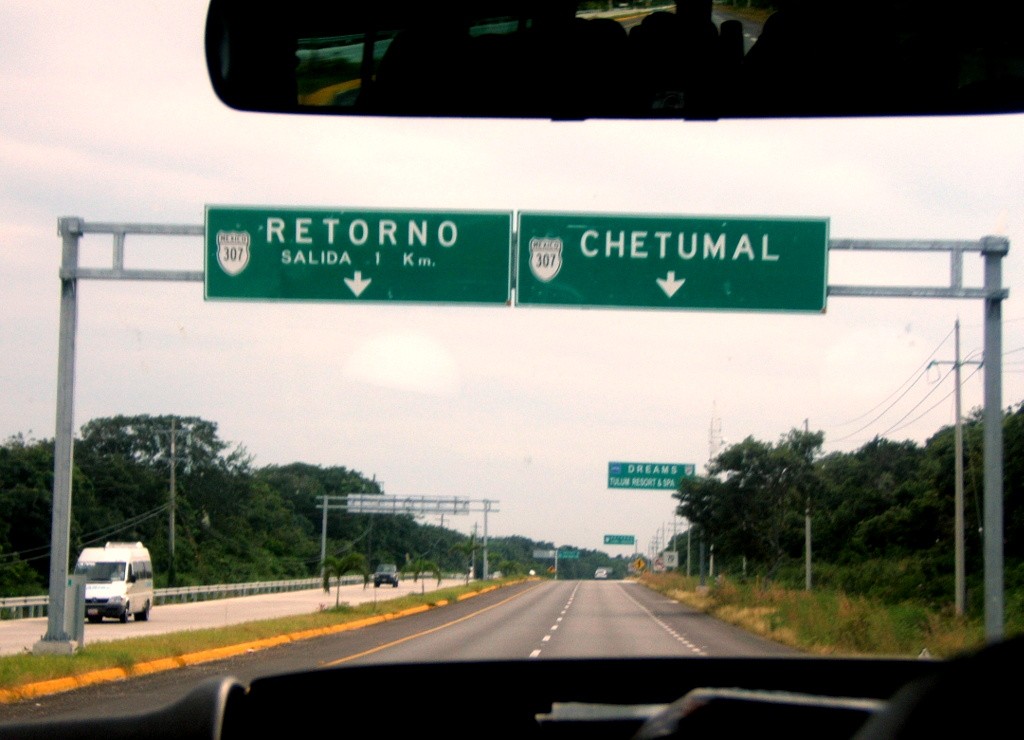
“Retorno.”
It’s a word you see a lot in Mexico on highway road signs. It indicates a place where drivers can turn around by making a U-turn through the median. Instead of big crossover exits, you simply make a retorno when you want to get somewhere on the other side of the highway.
My wife and I made a retorno to Mexico last week, spending a week south of Tulum in “eco-friendly” lodging — meaning no air-conditioning and showers that should more properly be called “trickles.” But the off-season rates are cheap; the beaches are beautiful and uncrowded; the sunrise, surf, and sea breeze soothe you awake; and the ocean is so close you can toss a cellphone into it from your cabana. Which is tempting.
I first went to the area 15 years ago, supposedly to vacation in Cancun, but I found it intolerably Myrtle Beached, so I rented a car and drove south 140 kilometers, until the road turned to gravel. Cabanas on the beach went for $25 a night then, sans electricity. I met ex-pats of all nationalities. They made coconut jewelry and candles, sold pot, and spent their days surfing and lying naked on the beach. I called the place Hippie Hollow. They called it paradise.
I’ve been back to the area a few times, and each year there are fewer hippies and more restaurants, bars, yoga spas, and cabanas with all the amenities, including wi-fi. The naked hippies have been replaced by topless sun-bathers (progress?). There are still a few places, like the one where we stayed last week, that retain some of the feel of the old days, but they seem doomed to fall to the resort-mania creeping down from Cancun and Playa del Carmen.
The upside for the locals is that the tourist-based economy is booming. There were tourists from all over the globe, but the venues are mostly locally owned and the work-force is Mexican. We talked to a couple of bartenders and waiters who’d been to the U.S. and “retorno-ed,” then emigrated to the Mayan Riviera because there was work to be found.
And that’s what so much of the (non-refugee) immigration problem comes down to, doesn’t it? People will find a way to get to a place where they can support themselves and their families. Doing so in your home country is better; legal is easier. But if those options are not available, all the border security and macho political posturing in the world won’t stop the ingress.
We could all take a lesson from the effects of the economic boom of the Mayan Riviera — and from those Mexican highway signs. When it comes to immigration reform, we should make a retorno to common sense.